Keeping secrets in a relationship is never a good idea. Even if forgiveness follows, the effects can resurface in painful ways.
Take the story of one woman who recently shared how her boyfriend failed to tell her he’d previously had HPV. She forgave him at the time, especially since he hadn’t shown symptoms in years and their relationship was otherwise strong. But years later, she was diagnosed with cervical cancer, likely caused by the virus he hadn’t disclosed. Now, while he’s been supportive through her treatments, she’s overwhelmed by feelings of betrayal, resentment, and fear of infertility.
It’s important for individuals to get regular checkups to detect and prevent serious health issues early

Image credits: mviabgd / freepik (not the actual photo)
A woman shared how she once forgave her boyfriend for hiding his HPV diagnosis but years later, a cervical cancer diagnosis has brought back feelings of resentment
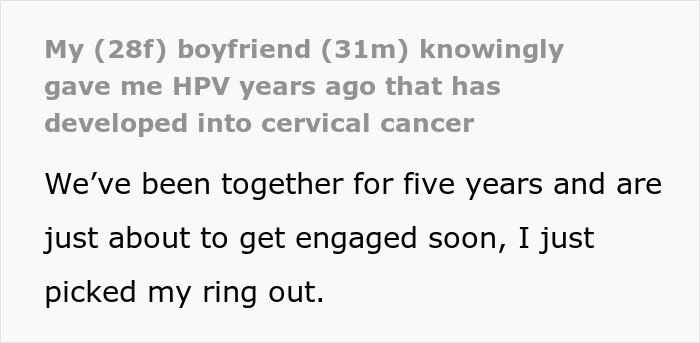


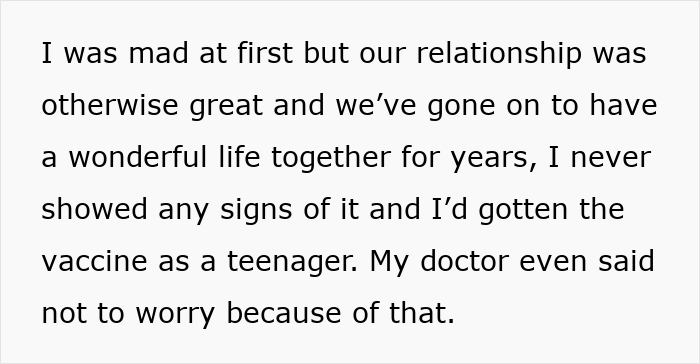

Image credits: egoitz_bengoetxea / freepik (not the actual photo)
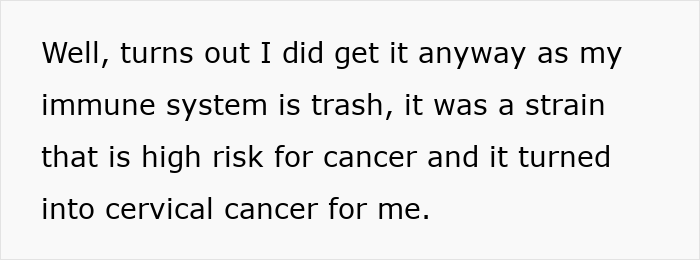
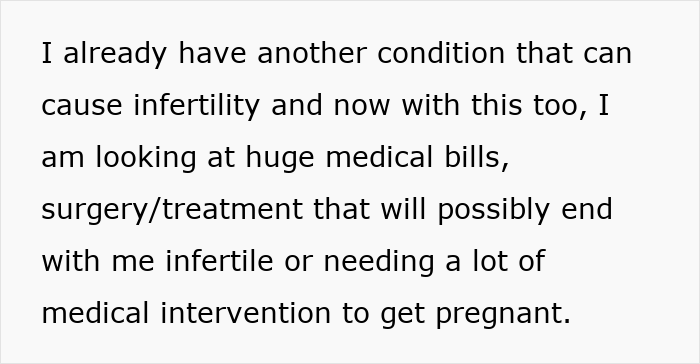
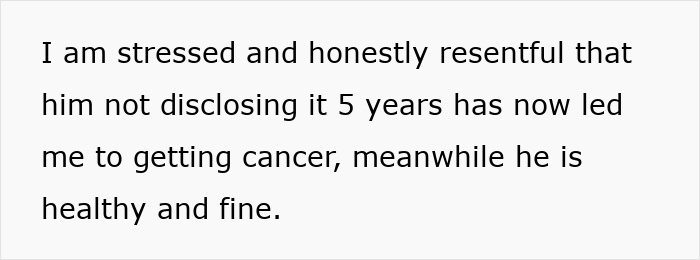

Image credits: freepik (not the actual photo)
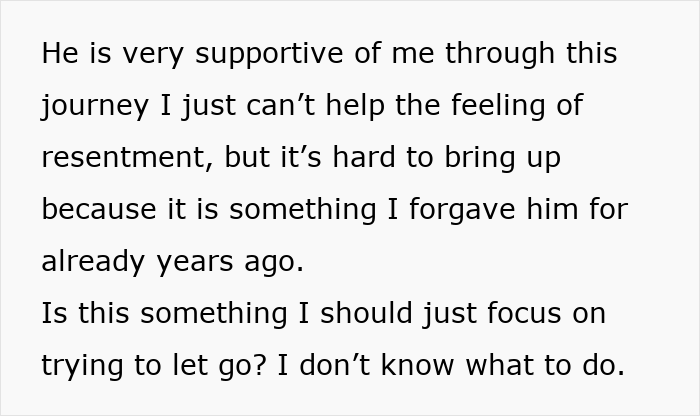
Image credits: Apart_Mycologist9082
The author addressed people’s concerns and opened up more about how the situation has affected her

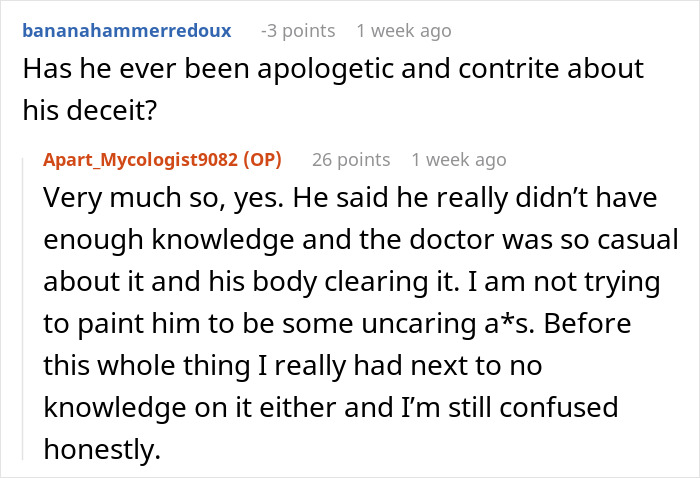
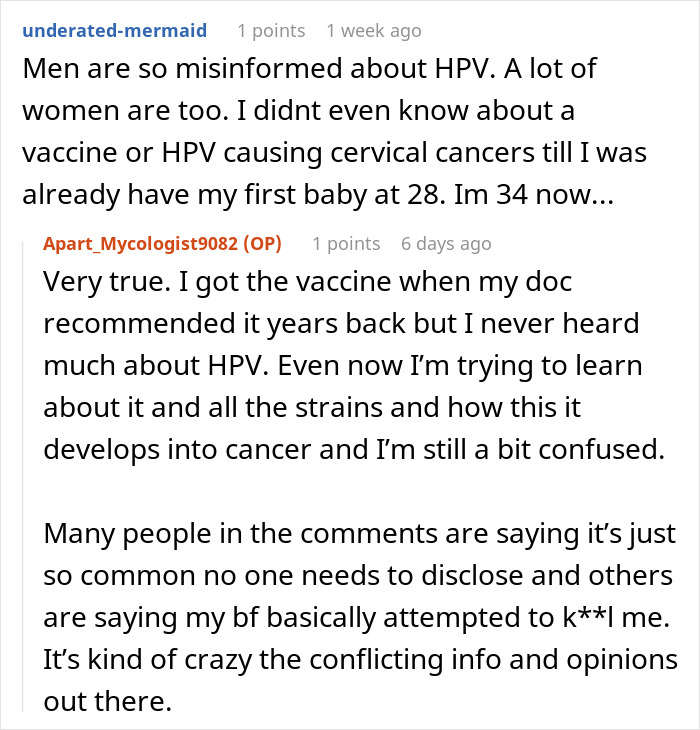
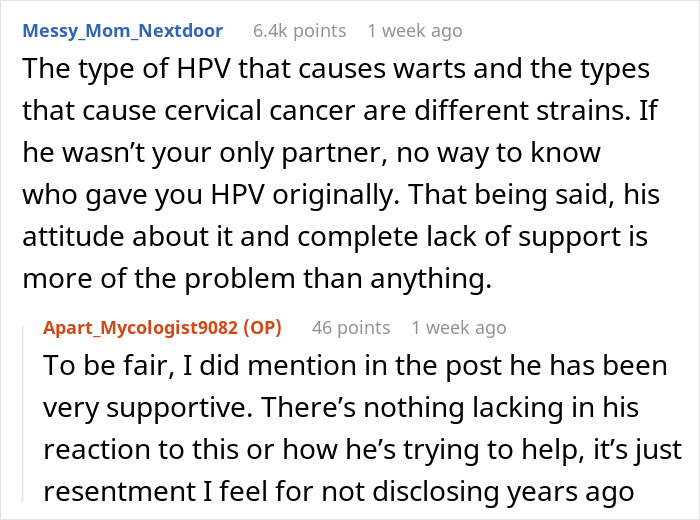
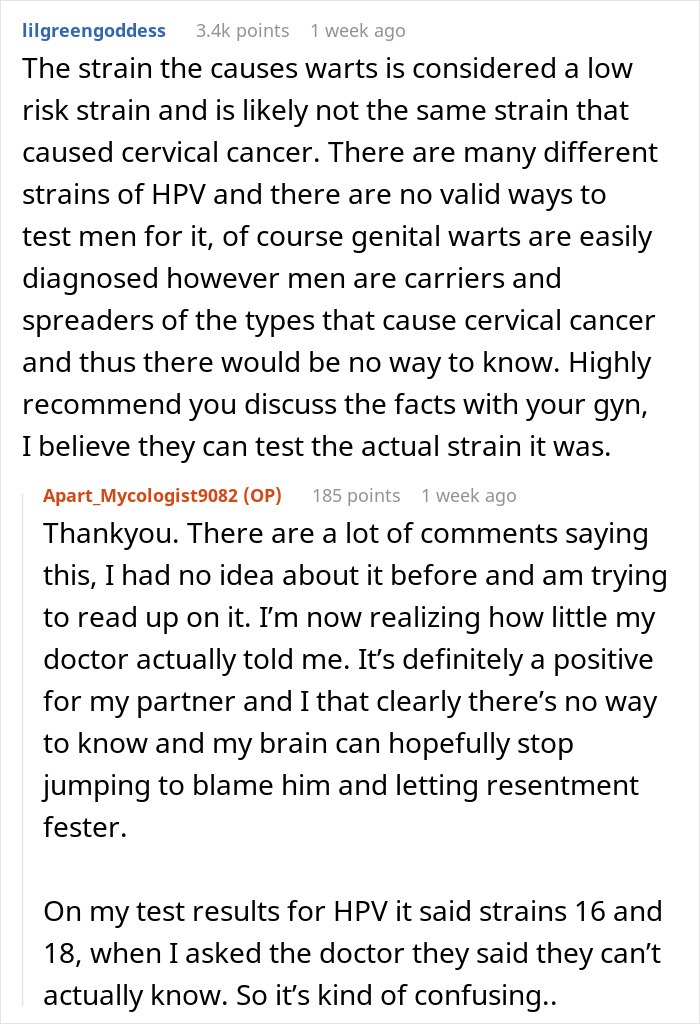
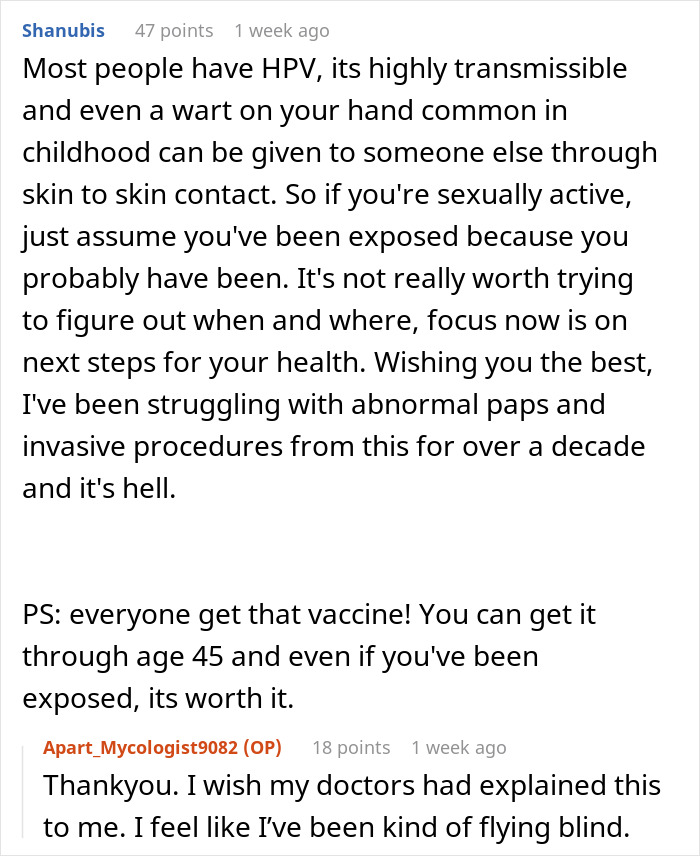
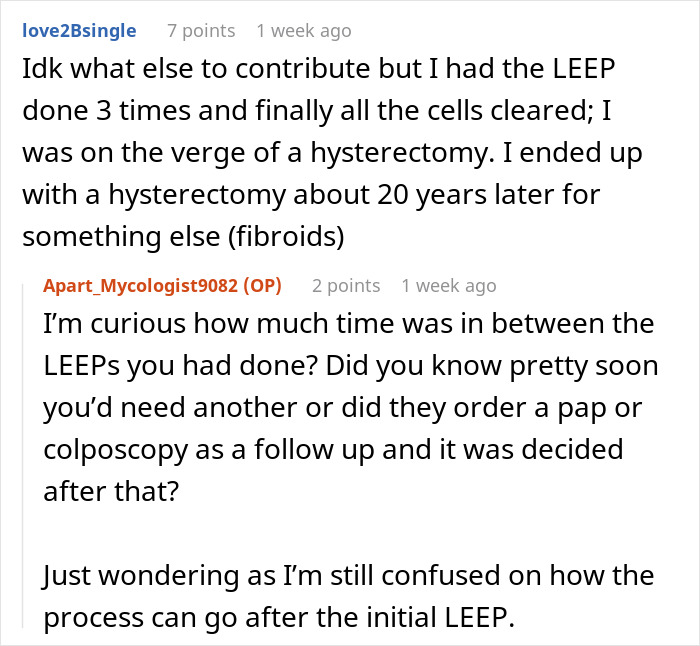
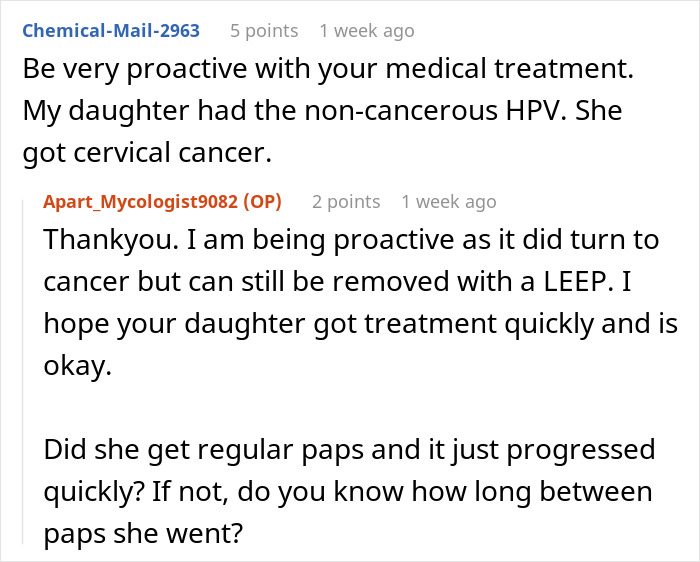
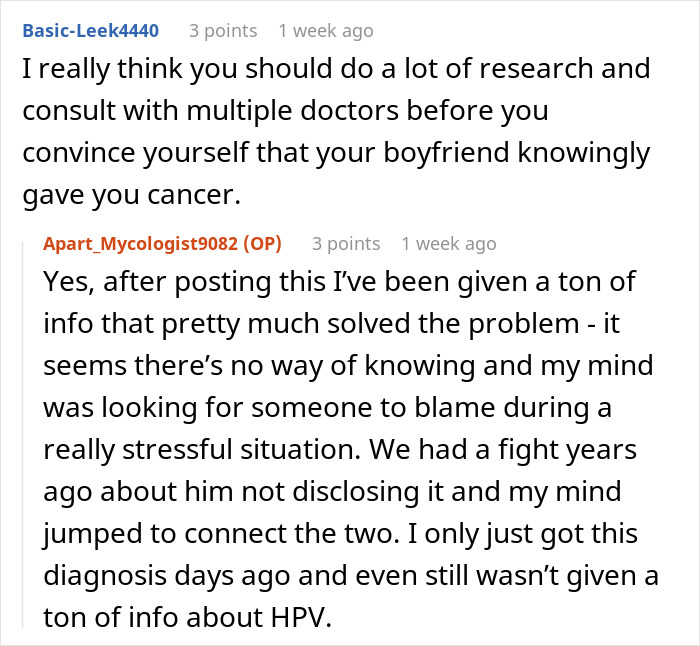
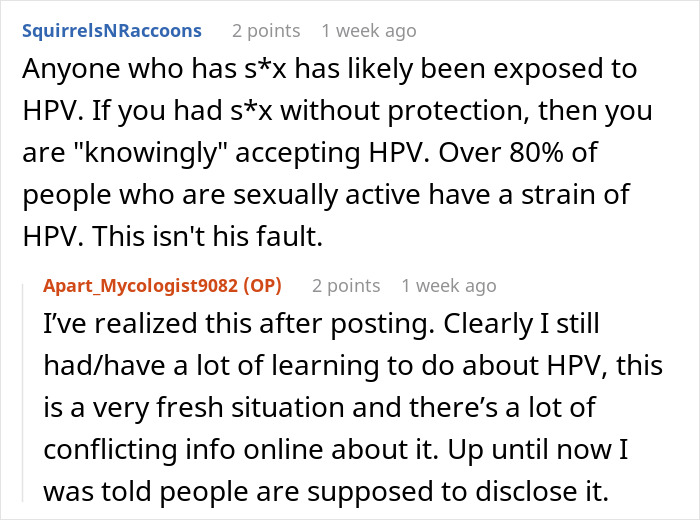
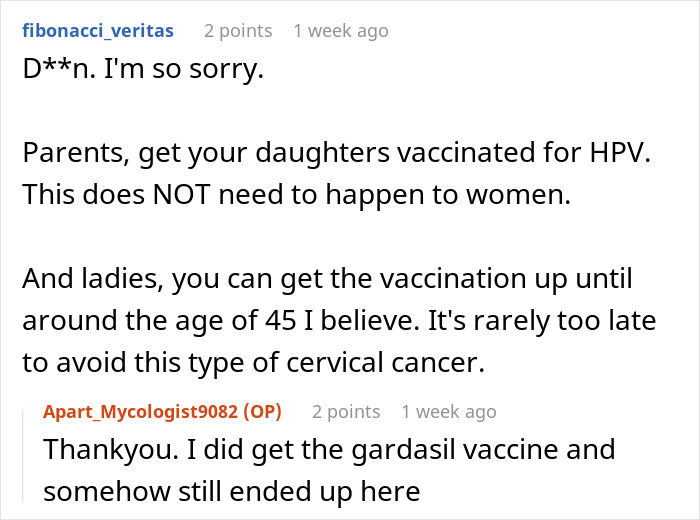
Getting regular checkups not only gives us peace of mind but also helps detect potential health issues early
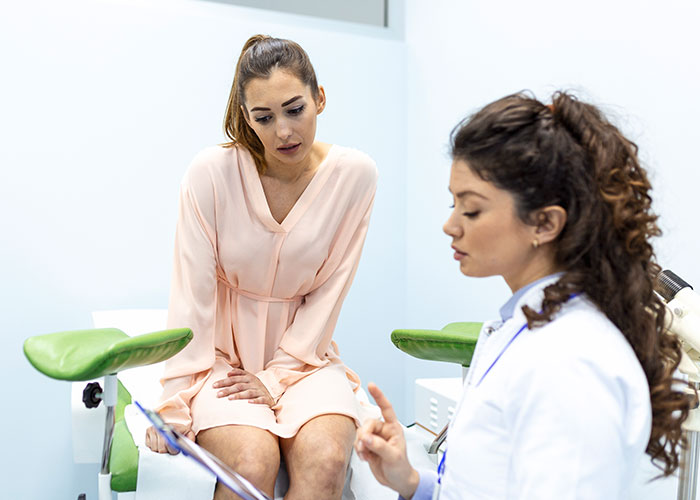
Image credits: stefamerpik / freepik (not the actual photo)
Getting regular health checkups might not be the most exciting part of adult life, but it can make a big difference. They help catch health issues early, often before you even feel anything is wrong. And when problems are found early, treatment is usually simpler and more effective. It’s really about giving yourself the best shot at staying healthy in the long run.
To better understand why routine screenings matter, Bored Panda spoke with Dr. Alka Pradhan, a general physician with over 30 years of experience. She shared valuable insights into how preventive care can make a big difference.
“With regular checkups, we can assess individual risk factors for various diseases,” says Dr. Pradhan. “Based on things like family history, bloodwork, and other health markers, we can recommend lifestyle changes, necessary vaccines, or early screenings. For instance, regular blood pressure and cholesterol monitoring helps manage the risk of heart disease and stroke.”
She also emphasizes the importance of physical activity. “These days, people sit for long hours at desk jobs. We’re seeing more back problems and stiffness. Even simple back stretches done regularly can prevent long-term issues. Your posture and daily movement matter.”
“Checkups also help us stay on top of vaccinations,” she adds. “Many adults forget that vaccines aren’t just for kids; boosters and routine shots are vital for long-term immunity.” She points out that staying updated can prevent serious illnesses down the line. “It’s a simple step that protects not just you, but your loved ones too.”
Another benefit of regular doctor visits? Raising awareness. “Sometimes people don’t even realize they’re at risk. Education is part of prevention,” she says. “Whether it’s understanding blood sugar levels, knowing what HPV is, or getting screened for cancers, knowledge can save lives.”
Early detection not only helps prevent serious health issues but can also significantly reduce treatment costs

Image credits: Stockbusters / freepik (not the actual photo)
Dr. Pradhan also highlights how daily habits affect health, especially for those who are sexually active. “Sexual health is often ignored until there’s a problem. Regular checkups help us catch infections or other issues early. It’s all part of overall well-being.”
“Don’t be afraid of doctors,” she urges. “We’re here to help, not to judge. The earlier we see you, the easier it is to guide you through manageable solutions instead of crisis care.”
Finally, Dr. Pradhan notes that early detection often leads to less invasive and less expensive treatments. “Waiting until symptoms appear usually means the condition has progressed. Routine checkups help us intervene earlier, which saves time, money, and emotional stress in the long run.”
In this particular case, the woman isn’t entirely sure what caused her cancer—it may have been the HPV, or a combination of factors, as is often the case with health issues. Hopefully, with the right treatment and support, she’ll recover fully and regain her strength. What are your thoughts on this situation? Do you think her feelings of resentment are understandable, even after years of forgiveness? Let us know.
Many people online responded with helpful and informative insights about HPV, vaccines, and related health conditions
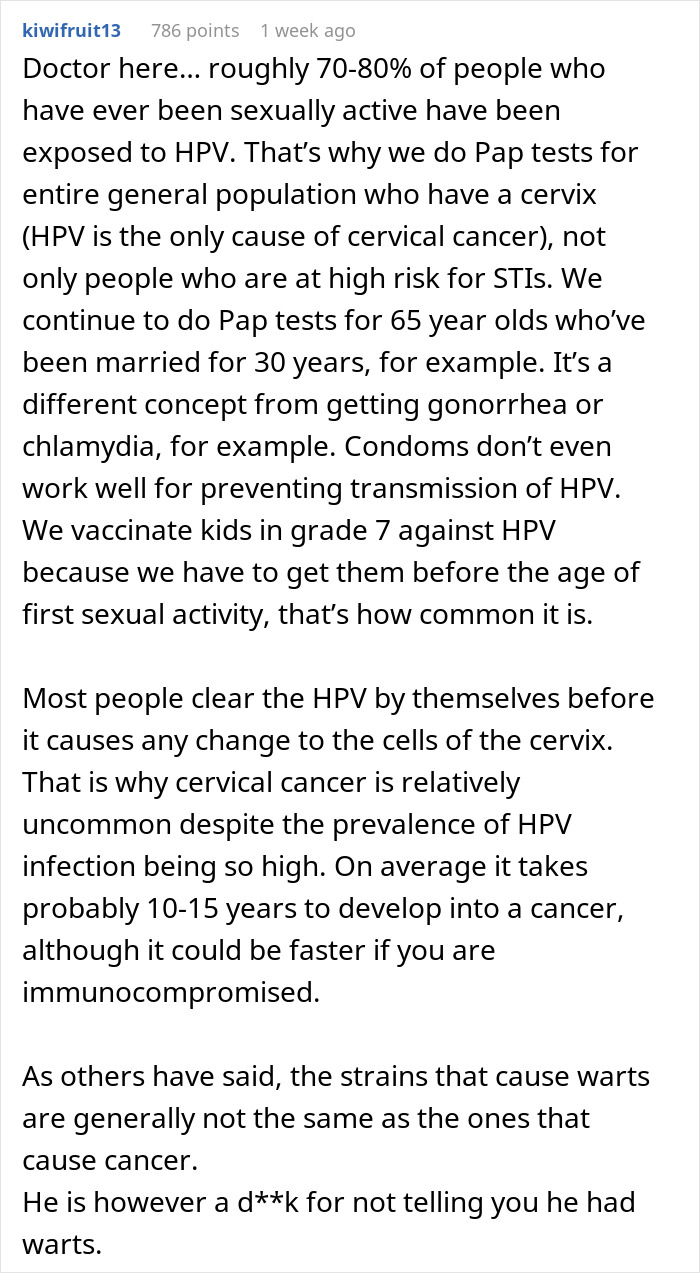
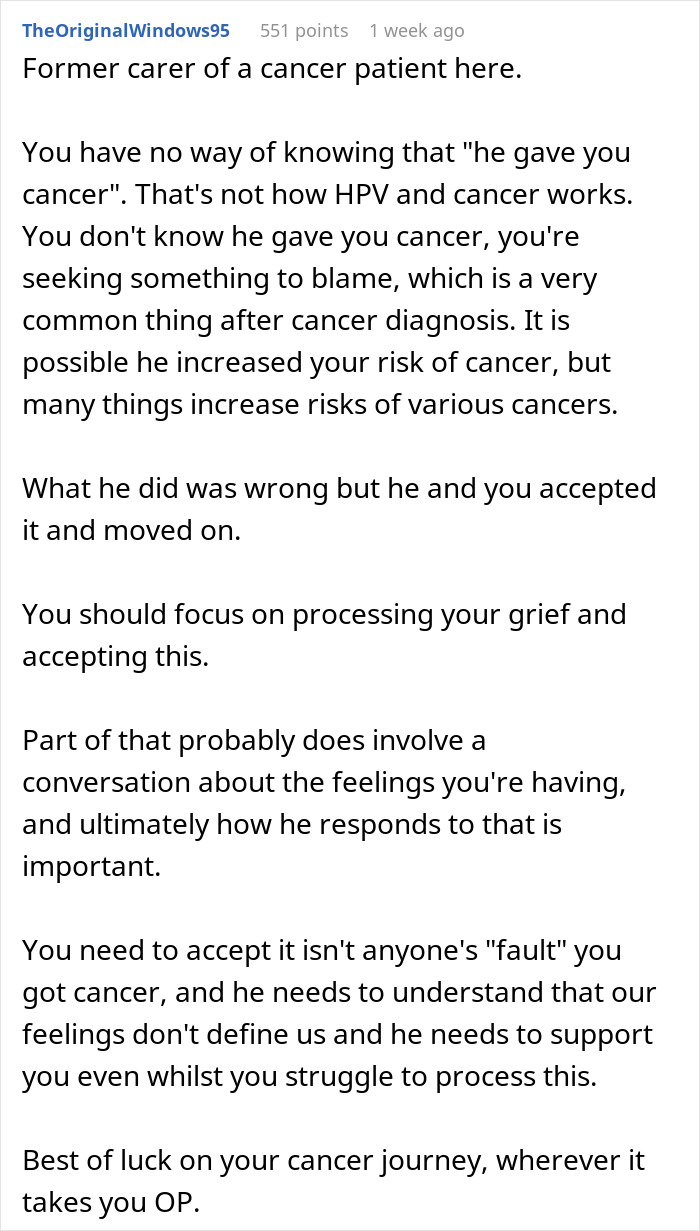
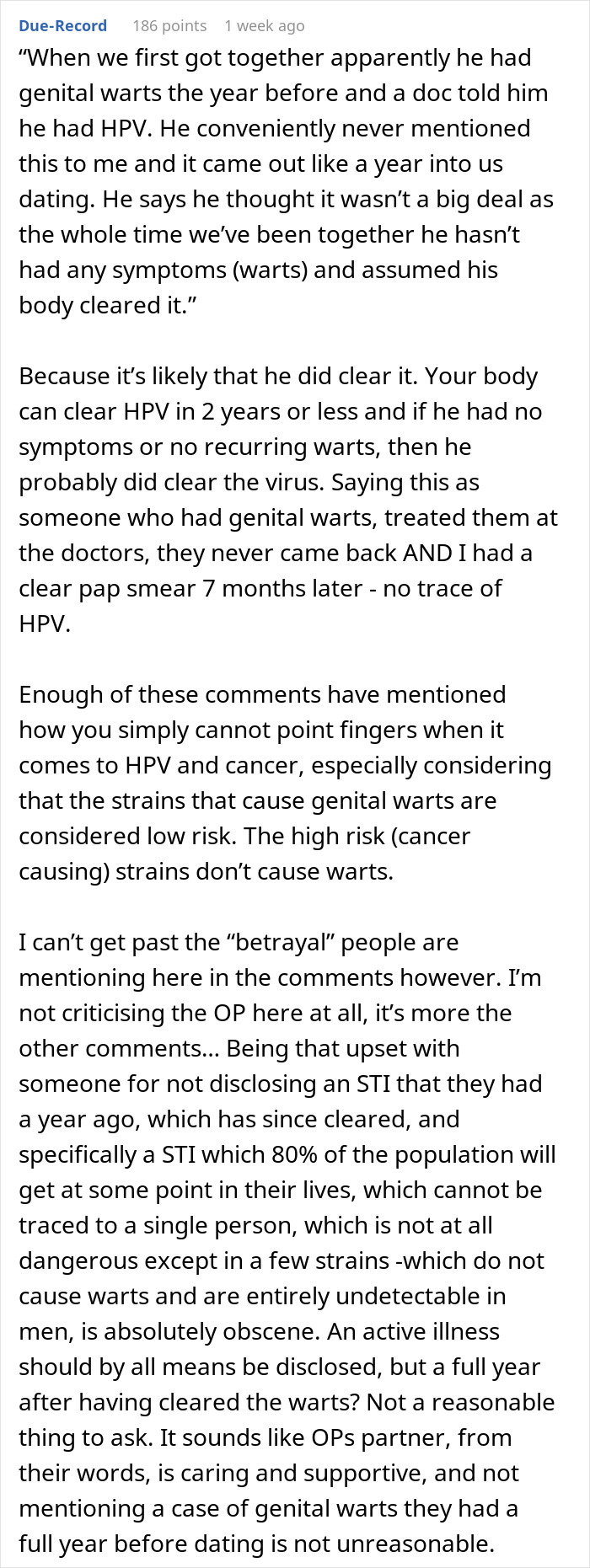



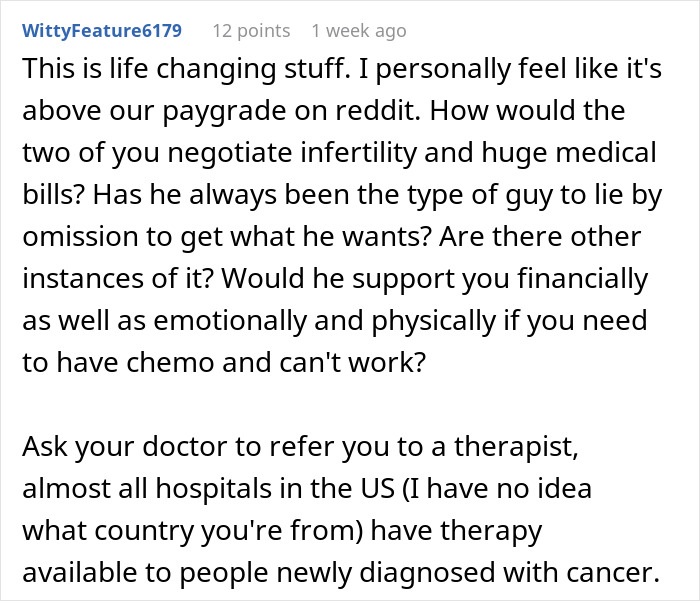
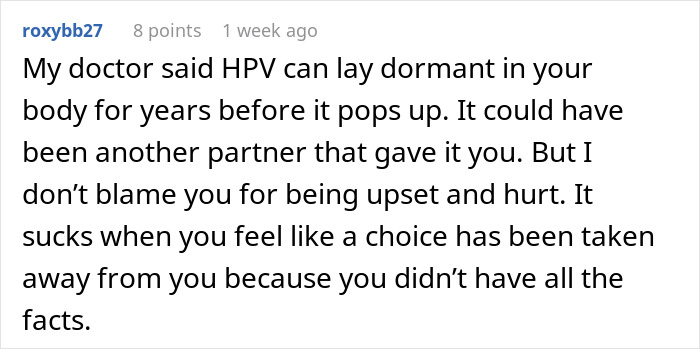
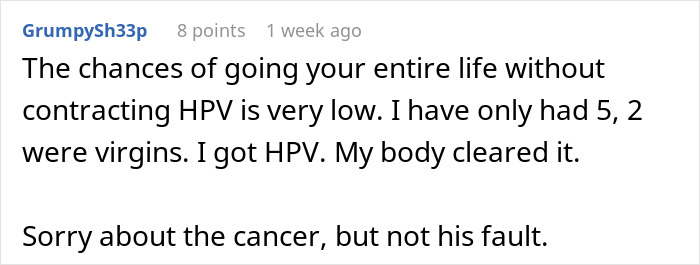
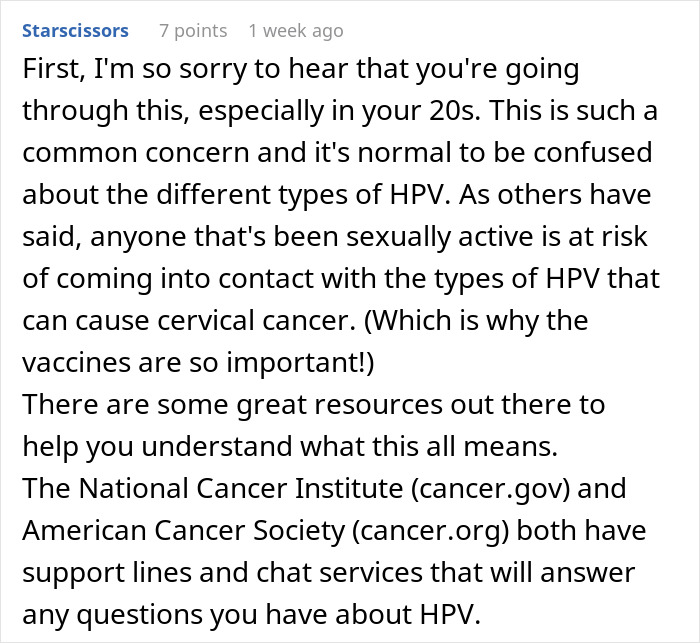


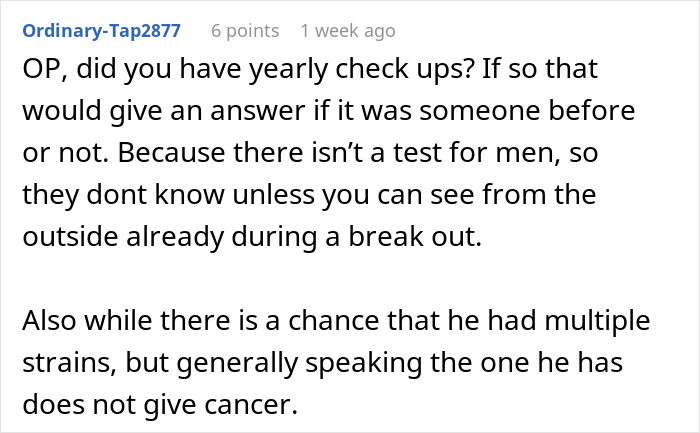
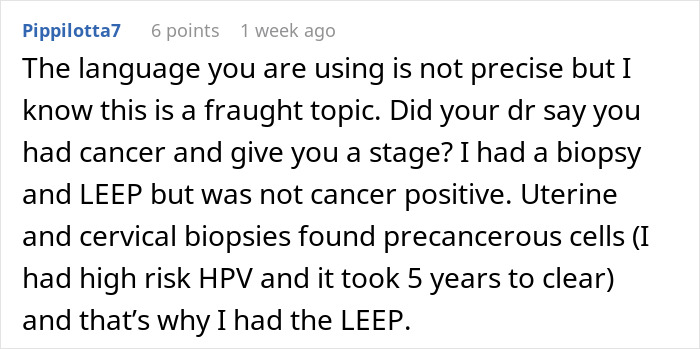
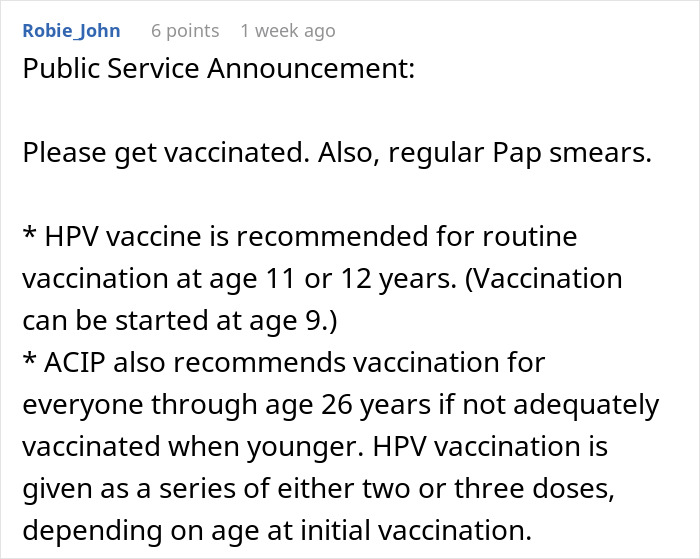

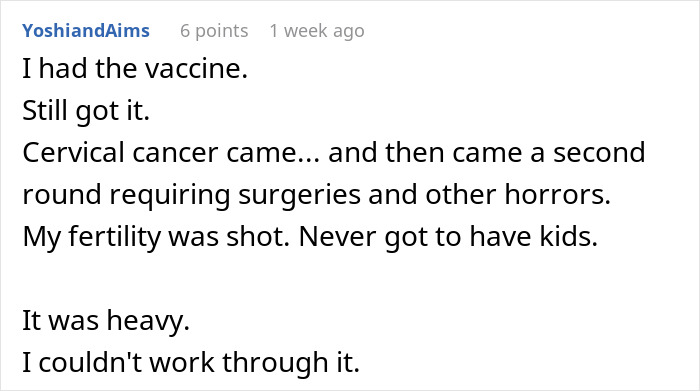
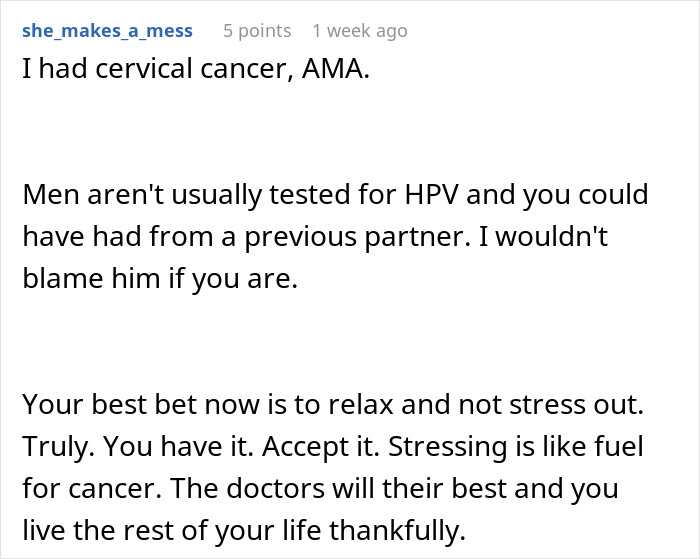

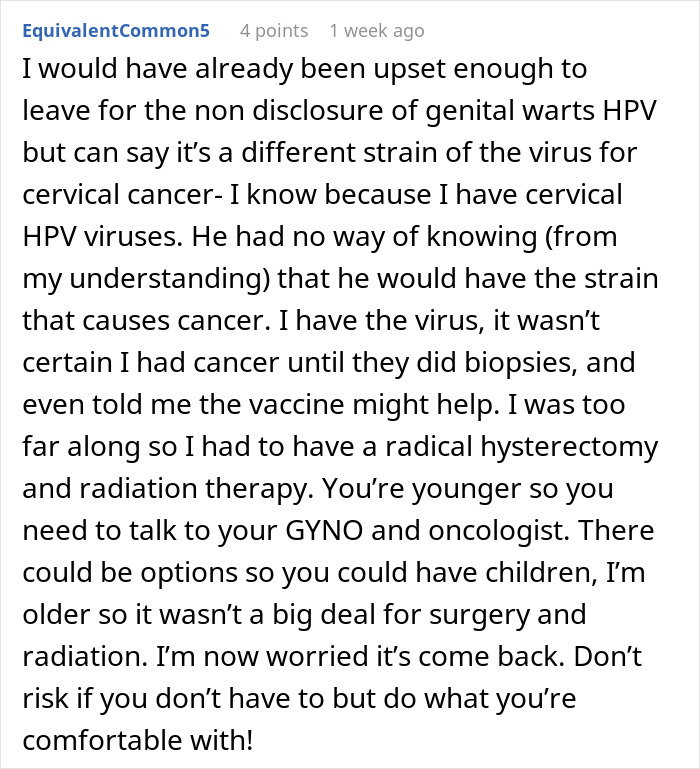
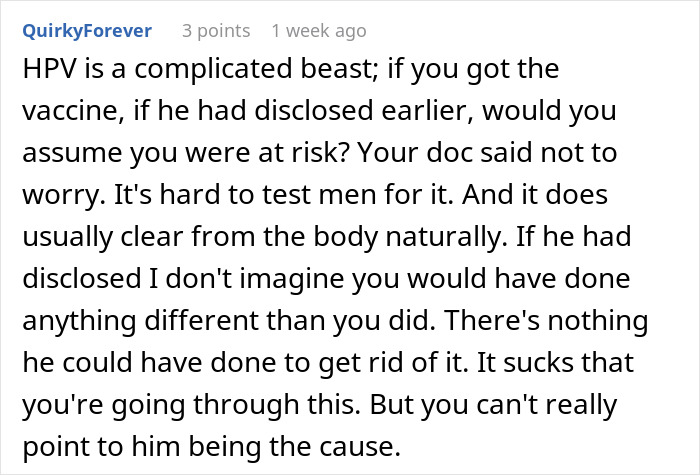

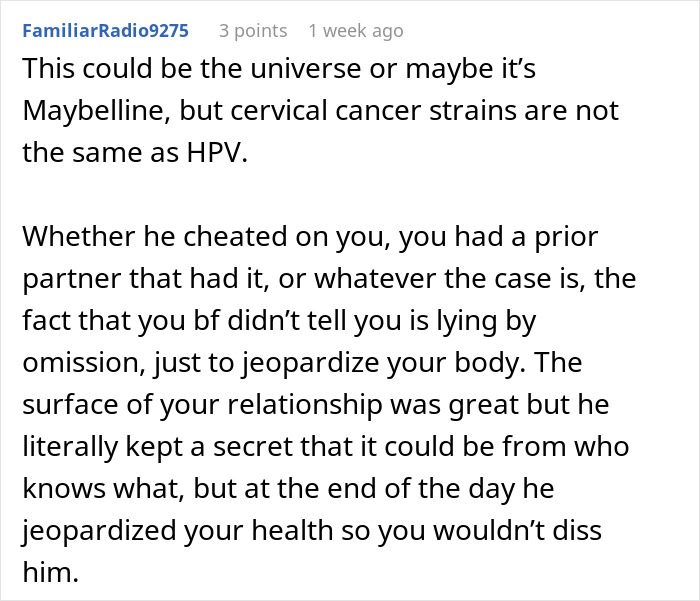

Image credits: freepik (not the actual photo)
After reading the comments, the woman posted further updates and expressed gratitude for the support and advice she received
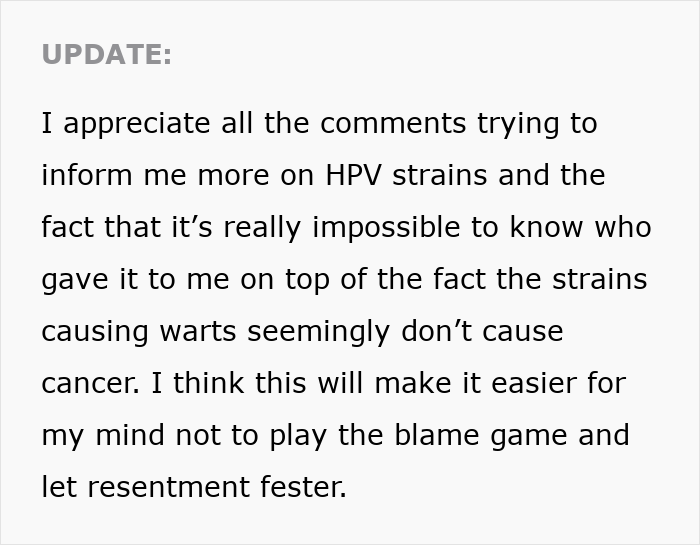
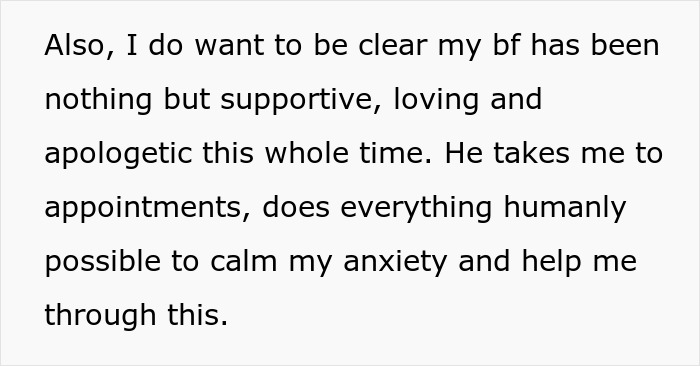


Image credits: syda_productions / freepik (not the actual photo)
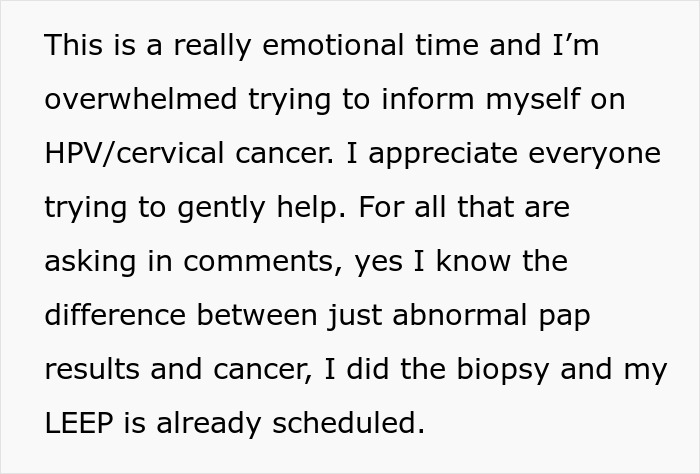
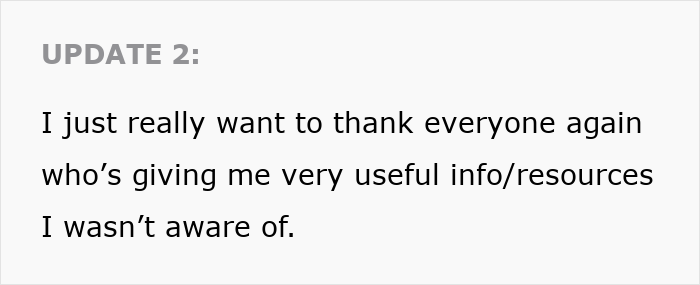
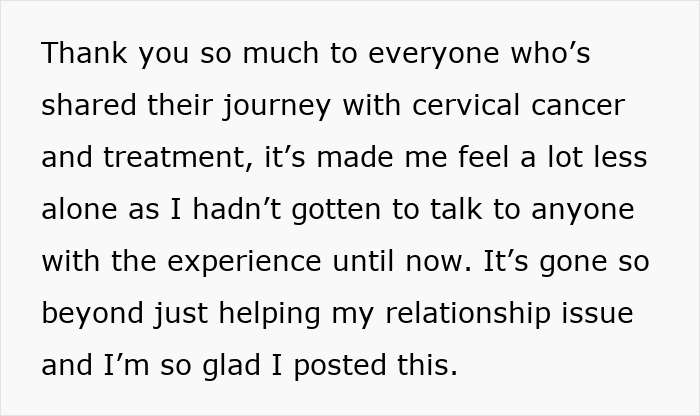
Image credits: Apart_Mycologist9082
 Follow Us
Follow Us



